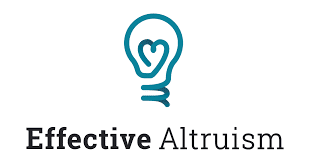Compiled by Lynn Sygiel, editor, Charitable Advisors
The effective altruism movement started with a simple question: Was there a way to apply data and reason to altruistic acts?
In 1993, two economists Michael Kremer and Rachel Glennerster traveled to Kenya for a vacation. Both had studied economics at the University of Oxford, met at Harvard and married. At the time, Kremer was an MIT professor and Glennerster worked for Treasury.
While overseas, they visited a friend who was working in Kenya and wondered if there was a way to scientifically test which good intentions are most effective. Kremer’s friend worked for a Dutch charity that was providing child sponsorships in Kenya. The group was trying to improve school attendance and test scores. But which of their efforts were making a difference — uniforms, adding teachers, flip chart or textbooks.
Kremer suggested they try a randomized controlled trial to determine what intervention was most effective. They would monitor and collect data from 14 schools of which half would be a control group. By collecting data in all the schools, they could see which fared better. The idea hadn’t been applied to development world. Testing each program one by one, Kremer found that there was no discernible improvement and these interventions had no effect on student outcomes.
Then a friend at the World Bank suggested deworming to cure parasitic infections in children with an annual pill. Kremer did an experiment to see whether it had an impact on education. What they learned was that the program worked to reduce absenteeism, a chronic problem at these schools. What was more impressive is that in a follow up 10 years later, children who had received the medicine worked an extra 3.4 hours per week and earned 20 percent more.
Kremer’s revolutionary approach gained a following and saw dozens of young economists running trials of development programs. By then, Glennerster had become executive director of the Poverty Action Lab at MIT and by 2007, the couple cofounded the nonprofit Deworm the World Initiative, which provides technical assistance to developing countries’ government to launch deworming programs.
And according to William MacAskill in his book, “Doing Good Better,” it is a way of thinking about how to make the biggest difference and uses evidence and careful reasoning to try to find an answer.
MacAskill helped develop the idea while he was a student at the University of Oxford and defines effective altruism as “using evidence and reason to figure out how to benefit others as much as possible, and taking action on that basis.”
Effective altruism, according to MacAskill has five key questions:
- How many people benefit, and by how much?
- Is this the most effective thing you can do?
- Is this area neglected?
- What would have happened otherwise?
- What are the chances of success, and how good would success be?
Initially, the movement was focused on individual-level charitable giving, and MacAskill also co-founded, Giving What We Can, with a fellow graduate student. The organization encourages individuals to give at least 10 percent of his or her income to the most cost-effective charities.
About the same time, two New York hedge fund analysts starting GiveWell, an organization that does in-depth research to determine which charities do the most good with every dollar. It compares for example how much good $1000 will do depending on which organization you give it to. GiveWell partnered with Cari Tuna and Dustin Moskovitz and started the Open Philanthropy Project.
In the process, the term effective altruism (EA) emerged as a community formed around these groups. Since 2013, EA has held conferences, run by the Centre for Effective Altruism at Oxford University. In 2015, the conference took place on Google’s campus in Mountain View, and in 2016 at the University of California, Berkeley.
Last fall, Vox Media launched Future Perfect, a new section to cover under covered issues. The twice weekly publication is inspired by the EA movement and is funded in partnership with The Rockefeller Foundation.


